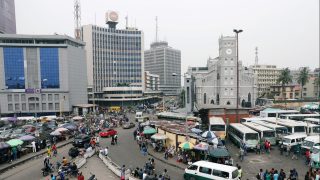Nigeria’s external reserves have been on an upward trajectory for a few weeks, offering some foreign exchange relief at a time when the country is faced with a decline in crude oil export earnings and uncertainty still hangs over the global economy due to the prevailing coronavirus pandemic.
From a low of $33.42 billion on April 29, on the back of a 10-month downward slope from June last year during which the country lost $11.75 billion, reserves have been on a steady increase according to central bank data. As of May 21, they had risen to about $35.77 billion, adding almost $1 billion in just 9 days – from $34.78 billion recorded on May 12, 2020. Over the 21-day period, this represents an increase of about $2.35 billion or 7 percent.
The sharp but sustained increase in external reserves, since hitting a peak of $45.17 billion last June, is in part due to the disbursement of $3.4 billion by the International Monetary Fund to the government earlier this month, reports say. The emergency funding is meant to help Nigeria mitigate the economic fallout of the ongoing pandemic, which has seen dollar earnings from oil dwindle and diaspora remittances dry up, putting the naira under pressure.
The local unit had been in a free-fall against other major currencies, particularly the dollar, but has recovered in recent weeks buoyed by the increase in external reserves and central bank-led improved liquidity in the foreign exchange market.
More so, experts see a notable decrease in forex volatility in the coming weeks with oil, Nigeria’s major foreign currency earner, expected to recover in about two months’ time. Prices took a nosedive with a dip in demand for oil as a third of the world population went into lockdown to curb the spread of the coronavirus. But as governments across the world lift movement restrictions and global economies gradually reopen, prices are expected to rebound.
There are already signs that oil demand is beginning to recover with international benchmark Brent crude recording sustained weekly gains, indicating major oil producers are sticking to commitments to reduce crude supply and more vehicles are getting back on the road.
A surge in fuel demand should help reduce the present global surplus of around 7-12 million barrels per day and rebalance supply and demand by June or July, Russia’s energy minister Alexander Novak said. The International Energy Agency has also offered some hope, saying recently that it had seen signs that the oil market would rebalance quicker than originally expected after producers implemented the agreed output cut.
The Organization of Petroleum Exporting Countries and allies (OPEC+) meanwhile is looking to keep the existing production output cuts beyond the June expiry date as part of efforts to rebalance the oil market. Some major players like Saudi Arabia, the United Arab Emirates, and Iraq have offered support to this effect while a meeting of members of the cartel is scheduled for early next month where discussions will be held whether to maintain supply cuts.
These economic developments should come as a big relief to Nigeria. Increasing external reserves, improved liquidity in the foreign exchange market, the rebound of oil prices, and the projected rebalancing in the global oil market will help reduce the financial pressure and boost the revenue of Africa’s largest economy.








